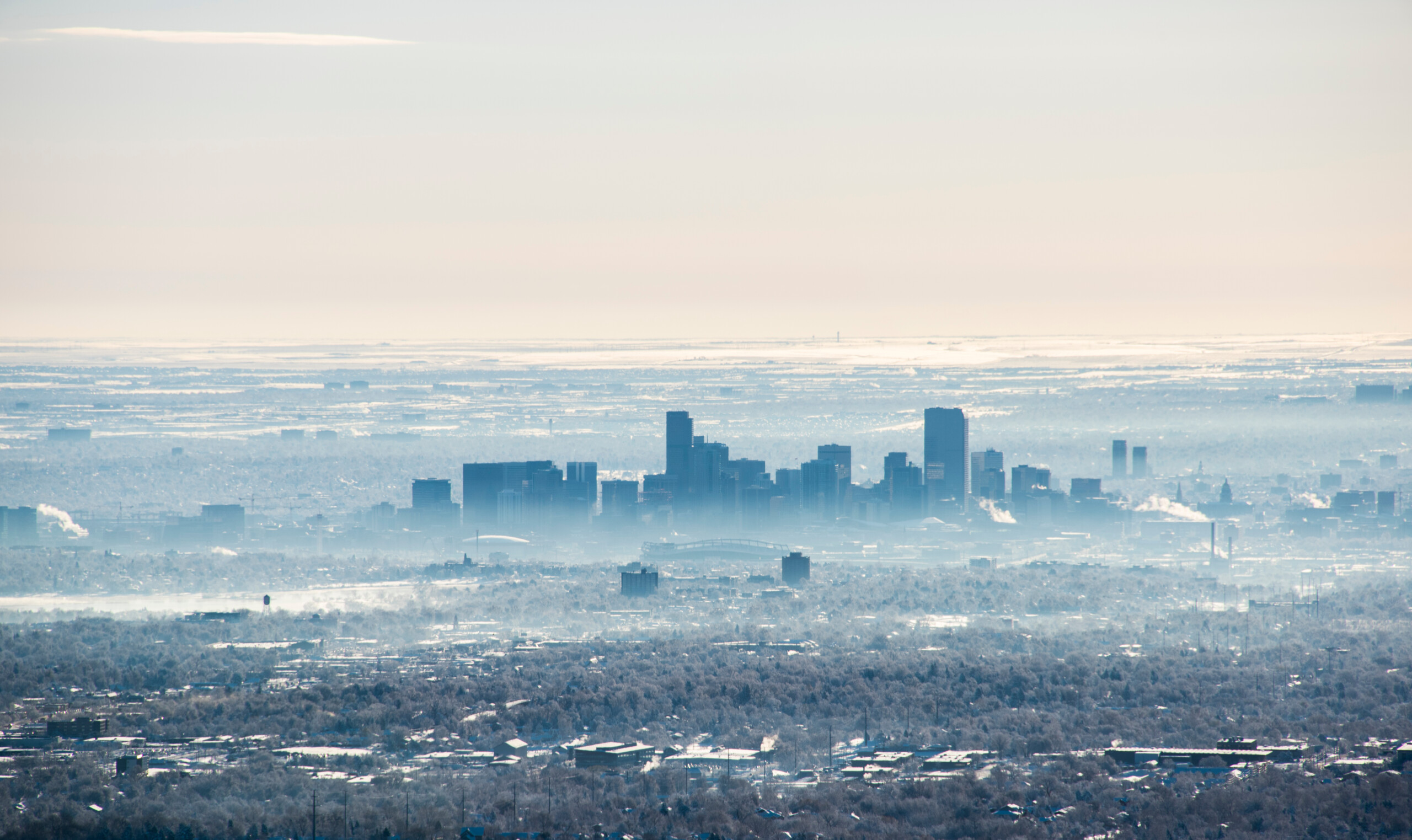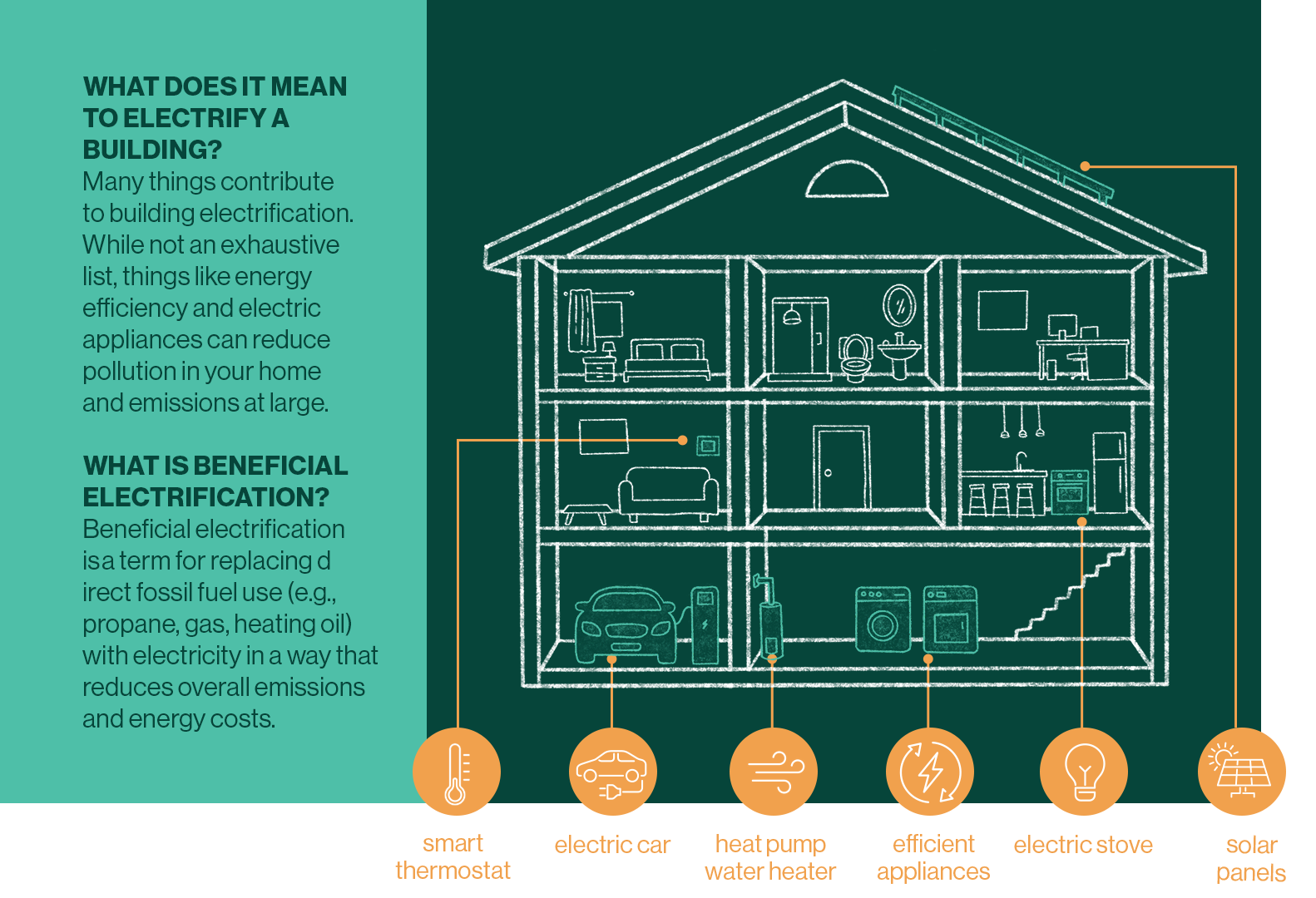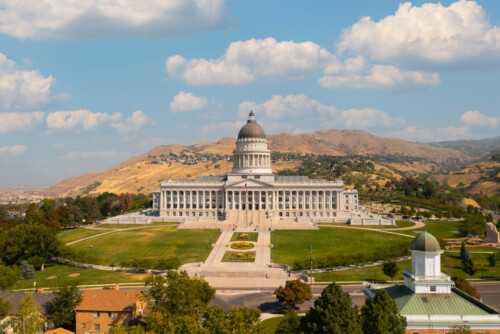Annual Report 2022
Few things are more central to our lives than our homes or the air we breathe. Heating and cooling are vital for our health and wellbeing, especially as climate change drives more extreme summer heat waves and poor air quality. Electrifying homes and businesses is critical for cost-effectively addressing climate change, and also protects customers from rising or volatile gas prices.
While there was cause for celebration after the 2021 passage of a WRA-instigated bill to advance clean heat that successfully navigated drafting, committee hearings, budget negotiations, amendments, and floor votes to the governor’s desk, the work is far from over. We are left with important and detailed work to ensure effective implementation that will determine the success of our efforts to advance cleaner heating and cooling in our homes and offices.
Our implementation and measurement stage requires a watchful eye, reference to the original blueprint, and careful inspection of the structures built from the policies we have passed. WRA works with lawmakers, agencies, utilities, and stakeholders to put policies into action, defend them in legal forums, assess and analyze their impact, and ensure they deliver their intended outcomes equitably.
The building and industrial sectors are key to addressing climate change. In 2021, Colorado’s Greenhouse Gas Pollution Reduction Roadmap identified combustion of fossil fuels in buildings as one of the four largest sources of greenhouse gas pollution in Colorado. Studies also show that two out of three buildings in the Interior West use fossil gas for cooking, heating water or spaces, or some combination of heating needs.

WRA envisions a future where electrifying our homes and buildings will lower energy costs, allow for more efficient use of the electric grid, improve indoor air quality, and reduce emissions, and we began laying the foundation for our vision.
WRA successfully advocated for and influenced the passage of Senate Bill 21-264 in 2021, a nationally groundbreaking law to clean up Colorado’s indoor air quality and reduce greenhouse gas pollution from buildings. This legislation requires gas utilities to implement clean heat plans to reduce emissions by 22% by 2030. It allows utilities to use multiple technologies to reach these goals, like energy efficiency and weatherization, and requires them to file clean heat plans with the public utilities commission to ensure these plans don’t burden consumers or disproportionately impacted communities.
With the landmark passage of the Clean Heat Targets Act, successful implementation will mean the difference between a model for the rest of the region or a slowdown in our progress toward clean energy. This decade is critical for scaling up the transition to a zero-carbon economy by midcentury to begin to see the impacts of emissions reductions over time, and the building-sector transformation must start now. By shaping the rules and standards for this legislation, we’re setting up what the future of beneficial electrification can look like in the West.
WRA has emerged as a leader in shaping and crafting the policies and establishing the principles for transitioning our homes and buildings to being more efficient, affordable, and healthy. Implementing the clean heat policy has required developing a set of evaluation tools and rules, starting from scratch, with the Colorado Public Utilities Commission (PUC) and the Air Pollution Control Division at the Colorado Department of Health and Environment. We actively participated in a rulemaking process with the Commission, provided recommendations for the requirements of utilities, and joined working groups to develop protocols for verifying and accounting for emissions reductions. When Xcel Energy filed their inaugural distribution system plan, WRA provided testimony for modifications and additions to strengthen the plan and to account for equity concerns, including upfront and shared costs of residential solar.

In addition to informing the rules and standards for utility clean-heat plans, WRA has served as a watchdog to ensure the process is kept on track and that conflicting interests do not delay the advancement of beneficial electrification. When Black Hills Energy proposed a renewable energy gas program that would have no emissions-reduction benefits, WRA and partners strongly opposed it, and Black Hills withdrew their application.
When Xcel Energy’s gas rate case proposed increased spending on the gas system, with increased rates and new capital investments, WRA pushed back. Xcel Energy wanted to spend over $500 million annually on capital investments in its gas delivery system in 2023 and 2024. Such investments would have extended the utility’s reliance on fossil fuels and saddled ratepayers with the cost of gas infrastructure long after its planned phaseout. WRA filed detailed testimony explaining the electrification alternatives available now and recommended the Colorado PUC not approve future gas investments without close scrutiny in the upcoming 2023 clean heat plan. We know that we need to phase out gas infrastructure and construction hookups to reach our goals, not increase them.
WRA continues to explore all the building blocks it will take to decarbonize our homes and buildings, addressing potential barriers along the way. Our work in researching and developing clean heat legislation, building a strong coalition to advance the bill, successfully advocating for its passage of the bill, and continuing engagement in establishing the rules of the game comes to a culmination in 2023, when Colorado utilities must file their first compliant Clean Heat Plans. WRA will continue to advocate for strong plans that meet the emissions reduction goals, ensure equity, and protect Colorado consumers.

Meeting clean heat goals establishes concrete plans for a future where subsidies for gas appliances are eliminated, fees to leave the gas system are removed, gas infrastructure is phased out, the market share of heat pumps to replace existing heating and cooling systems has expanded, and a trained workforce is ready to meet the demand for installation. Our communities can have healthy, thriving spaces with clean air, both inside and outside, and the equitable financial assistance to make it a reality. By building the future of clean heat through implementation and measurement, WRA is intervening to make sure that we’re driving the gas transition as efficiently, affordably, effectively, and equitably as we can.









